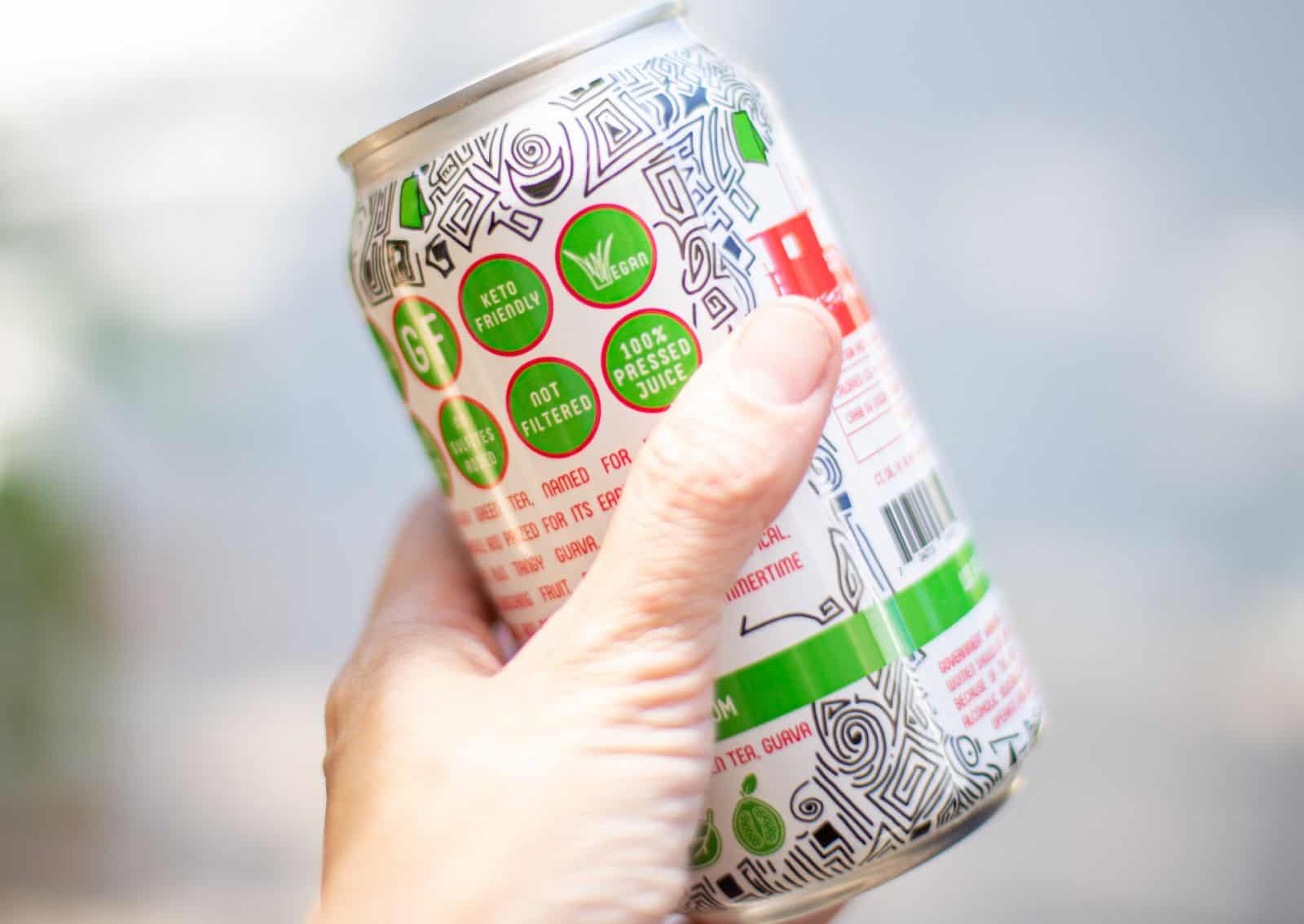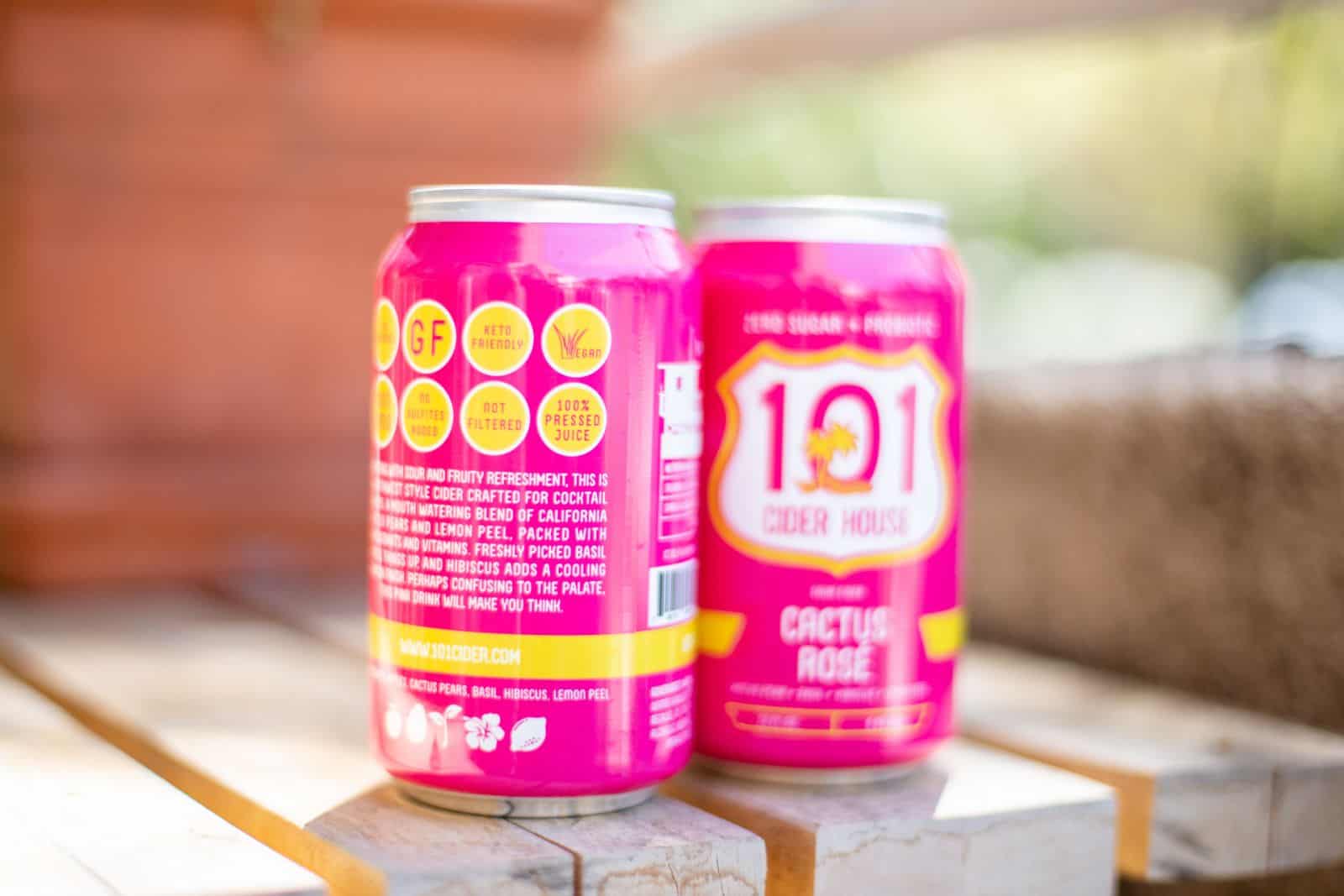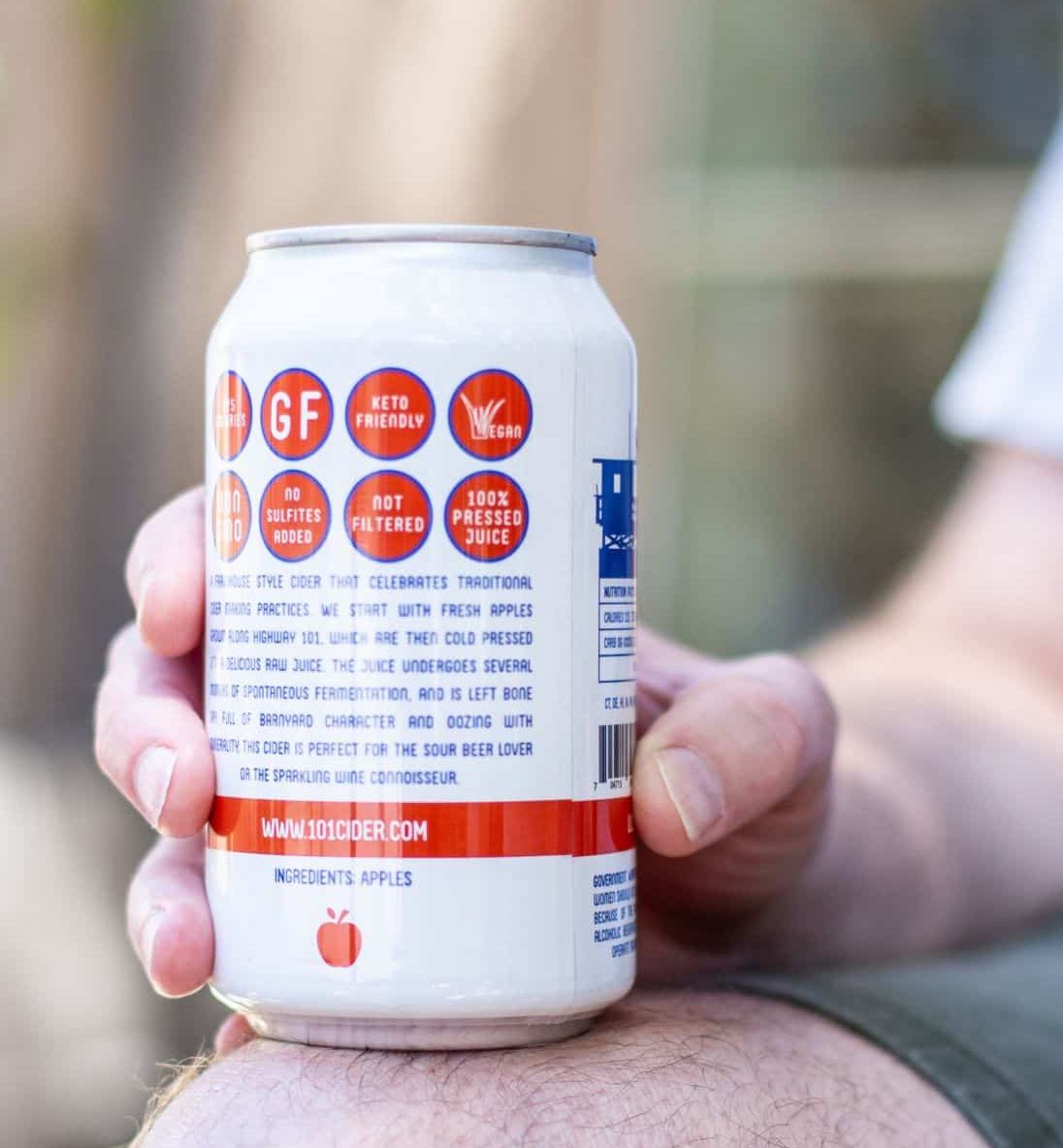Plant-based diets have never been more mainstream — we see new vegan products, meal kits, cafes and restaurants popping up all the time, and find that more people in our lives are leaning into the concept of not eating animals. The hashtag #vegan has 114,758,579 posts on Instagram, and huge celebrities like Beyoncé, Ariana Grande and Zac Efron are public and vocal about their plant-based lifestyles. There’s also fresh news every day about how climate change’s looming dangers and factory farming’s negative effects contribute to the environmental crisis; it’s no wonder that these compounding issues have helped this dietary philosophy to take root.
If you’re a vegan, or just want to understand more about the products that you’re consuming, you might be wondering if hard cider is vegan. It seems like a relatively simple question, but there is a bit more to it than meets the eye. Let’s dig into a bit more.

First, as you might have noticed, some ciders proudly display wording about being vegan on their packaging, Instagram profiles and websites. But, just because a cider doesn’t have a “vegan” stamp on it doesn’t mean it’s not vegan. 101 Cider House, a craft cider brand based in Los Angeles, is one that puts the vegan label right out there for the consumer to see. Andrew Sylvia, 101’s production manager, says that they’ve gotten a great customer response to the label.
“Here in California, where we’re based, plant-based diets are super popular,” he notes. “Customers have told us that they appreciate how easy and convenient it is to find out that our products are 100% vegan.”
All of 101’s Cider House’s ciders, from its straight up Hazy Apple Scrumpy to wackier releases like The Friendly Stranger (passionfruit, yerba mate and dandelion root), are made with juice that’s spontaneously fermented with no additives.

“The closer cider can get to apples and natural yeasts, the more certain you can be that it’s vegan,” Sylvia says. “Ours are naturally vegan because we don’t add anything and we don’t take anything away in the cidermaking process.”
There are a few typical factors that would make a packaged craft cider not vegan, Sylvia says. They generally fall into these categories:
- Juice: For smaller cideries who grow their own apples or source juice from trusted farmers, this likely is not an issue. But sometimes, industrial juice produced on a massive scale can be clarified with isinglass, a type of gelatin made from fish bladders. Isinglass is very effective in terms of bonding to particles and making liquids very clear.
- Stabilizers/additives/clarifiers: This is the big one. Although unfiltered cloudy ciders are on the rise, and have always been the standard for many natural cidermakers, the industry standard for a long, long time was clear cider. This is also the case for beer and wine. There are lots of ways to filter (remove dead yeasts and other particles) and fine (clarify and stabilize) alcoholic beverages, including cider. Some of these, like using gravity or racking the liquid from one vessel to another to leave the sediment behind, can be done without additives, but it does require skill and time. Often, natural chemical aids are used to speed up and regiment the process — and, many of them contain gelatin, isinglass or egg whites. Sometimes, a substance called chitin (derived from crab shells) or collagen are used. These are not things that will be listed on nutritional information or show up on a cidery’s website. If you’re committed to your veganism to this level, you may need to reach out to ask a representative from the cidery how they filter or fine their ciders. If a cider says that it’s “unfined and unfiltered,” then this isn’t something you need to worry about.
- Adjunct ingredients: This is the second most common reason that ciders might not be vegan. A number of commercial ciders contain honey as a flavoring and/or sweetening agent. Less common (but certainly out there) are eccentric flavored ciders that infuse things like bacon, cookies, milk, gummy candies or other adjunct ingredients that may themselves contain animal products.
- Backsweetners: Some cider makers hit finished cider with a bit of sweetener just before packaging. This is called backsweetening. It’s not super common among professional cideries, and is a technique more often used by home cidermakers. Sometimes apple juice or sweet cider is used to backsweeten, but if it’s another type of sweetener, like processed white sugar (which can contain animal bone char), honey or lactose sugar (derived from milk), then it might render the cider not-vegan.

There are websites like Barnivore and PETA where you can search to find brands that make vegan alcoholic beverages, but they are in no way complete, especially when it comes to smaller, more regional cideries. When in doubt, Sylvia says, reach out to the cidery. They should be transparent about their ingredients and processes and will hopefully be able to give you an answer.
As for 101 Cider House, Sylvia says he’s happy that all of their products are vegan.
“Coming from a beer background, I’ve definitely seen weird additives put in during the brewing process,” he says. “I like that at 101, we’re making cider that’s as close to just-fermented juice as possible.”
Are you interested in seeking out vegan ciders? Have you found some brands that are, or aren’t vegan, that surprised you? Let us know!
- Photos: 101 Cider House